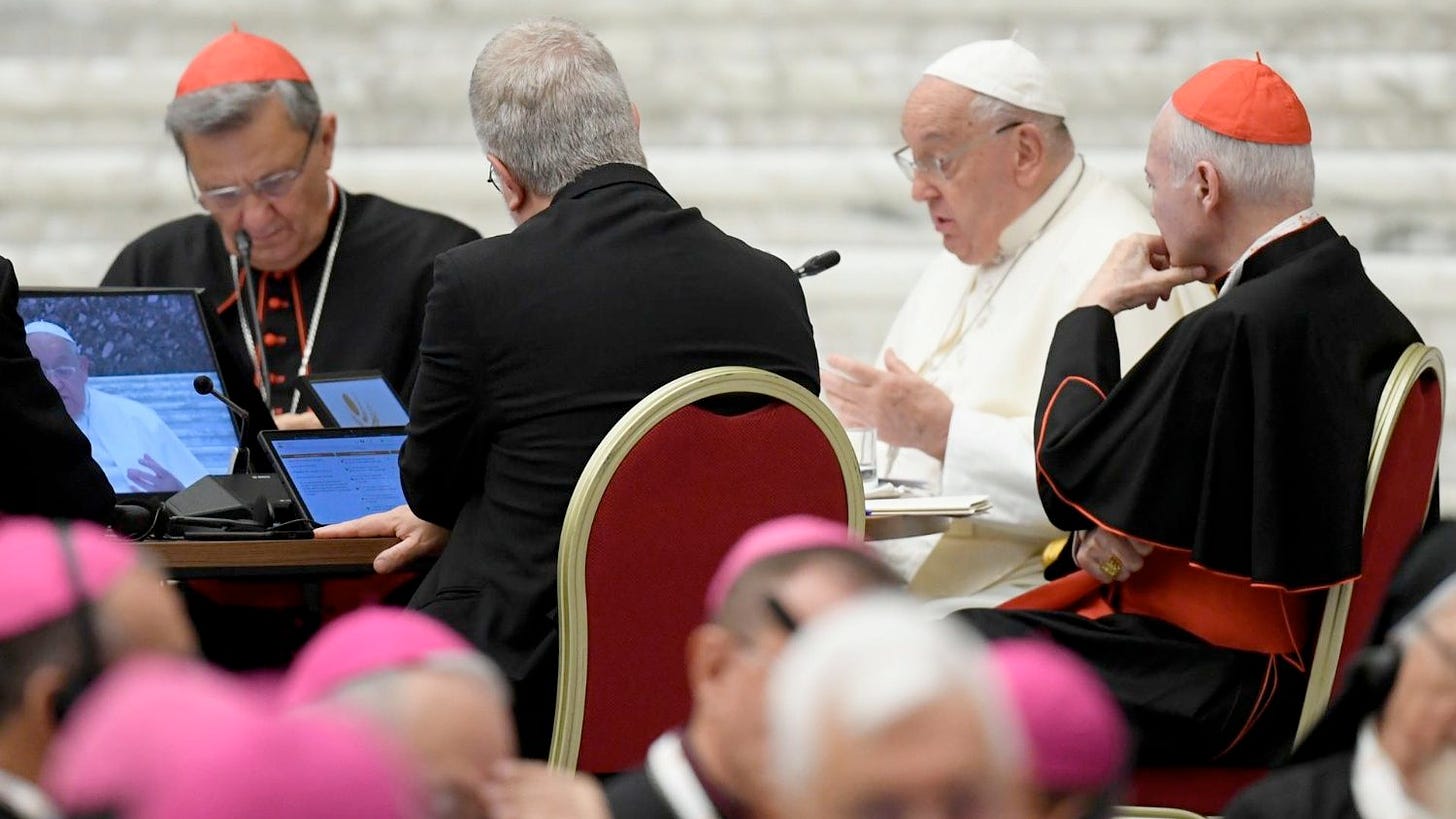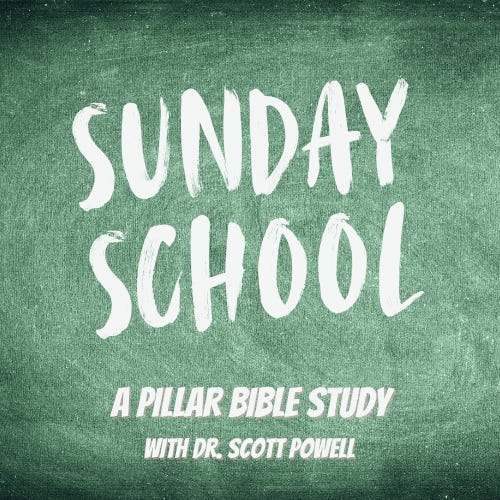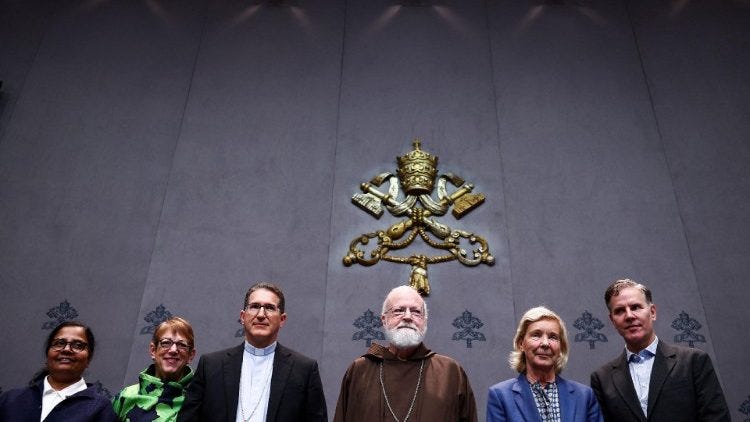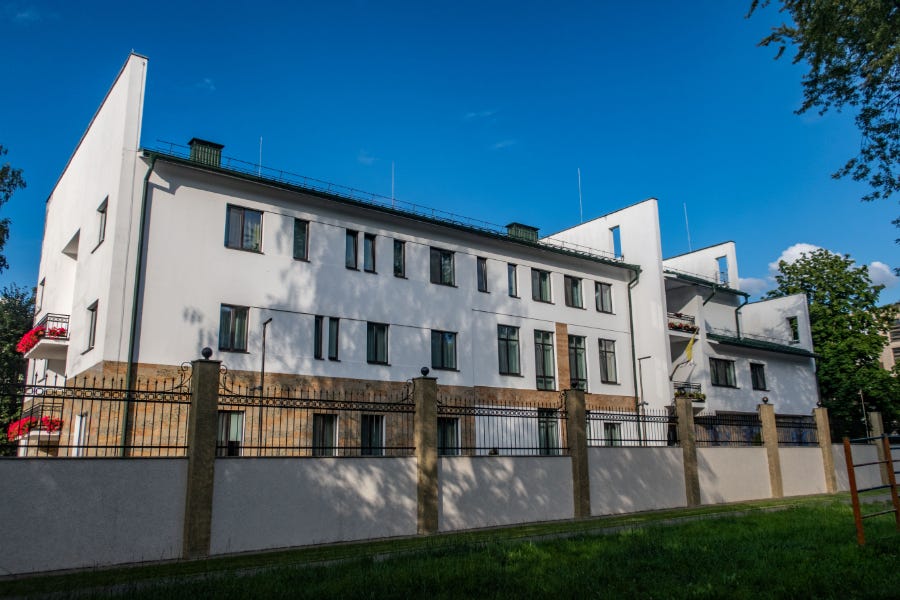The final session of the global synod on synodality began this week in Rome, with delegates from around the world set to meet for much of the month to reflect on the multi-year series of meetings at every level of the Church.
The synodal process has, since the day of its announcement, been hailed in some quarters of the Church as a watershed moment, a kind of quasi-Third Vatican Council which would, in some unspecified but seismic way, inaugurate a new and irreversible way of “being Church.”
But as the final session gets underway, it seems increasingly hard to see the real end of the synodal process — in either practical or ecclesiastical terms — and little sign from Pope Francis of when or how he intends to cap the process off and cement its legacy.
—
As participants embark on the final session of the synod, some could be forgiven for wondering if this really is the end.
When Pope Francis first announced his plan for a worldwide process of listening and dialogue cum Petro et sub Petro, the entire process was meant to wrap up in Rome in October last year. Francis then decided to extend the affair with a second session in 2024.
But even with this extended deadline has been further pushed back.
In March, Pope Francis announced that one of the most contentious issues to be raised — albeit only by a vocal minority of participants — would be taken off the agenda for the final session. Instead, the conversation on the female diaconate would be handed over to a study group, which would continue its work into next year, with no set date for when it would report.
On the issue of female ministry itself, the move is just the latest occasion on which the pope has punted the ball to a study group — he’s asked the Dicastery for the Doctrine of the Faith to study the same issue more than once.
This hasn’t stopped those in favor of full, sacramentally ordained female ministry from pressing their agenda. While a handful of “womenpriest” activists attempted to disrupt Francis’ final Mass at King Baudouin Stadium in Brussels during his recent visit to Belgium, at least a similar number of synodal participants have signaled their own openness to the ordination of women.
Yet despite the minority activism and open-ended discussions, Francis has been explicit that while some reviving of the apostolic-era role of deaconesses is possible, female sacramental ordination is not.
The point was driven home by Francis on his way home from Belgium. Asked during the in-flight press conference about the Catholic University of Louvain stating that the institution “deplores the conservative positions expressed by Pope Francis on the role of women,” the pope reiterated his — and the Church’s — consistent teaching on the true dignity and spiritual genius of women which is distinct from ordained ministry, which is reserved to men alone.
“I see that there is an obtuse mind that does not want to hear about this,” the pope observed.
Whether such “obtuse minds” were also present in the Vatican on Monday, when Francis met with a delegation of activists for the female diaconate, it is hard to say for sure.
But what was clear from the meeting was that advocates for something to which the pope has repeatedly said “no” still consider the door as least unlocked, if not open, via the synodal process, even if their hopes seem destined for inevitable albeit constantly prolonged disappointment.
Similarly, many had hoped the synodal sessions would emerge as a turning point in the Church’s teaching on human sexuality, with participants from some regions — most notably Western Europe — repeatedly calling for a wholesale revision of doctrine, especially in relation to homosexuality.
Yet on this front, too, it seems clear the synod is not going to deliver the “paradigm shift” some believed it would. Even the term “LGBTQ+” was excised from the 2023 session’s final document after pushback “by some synod members from the global south,” as Cardinal Cupich put it.
In December last year, the Dicastery for the Doctrine of the Faith issued new guidelines on the blessing of persons in same-sex relationships, initially triggering global reports that the Church had opened the door to accepting same-sex unions. There then followed a series of clarifications from the dicastery prefect, Cardinal Fernandez, underlining that nothing had actually changed in regard to the Church’s moral assessment of same-sex relations.
And again under direct pressure from bishops from “the global south,” as Cupich would have it, the DDF even signed off on an Africa-wide opt out for the guidance.
Prominent synodal participants, like the Dominican Father Timothy Radcliffe, have continued to advocate for synodal discussion not to be framed “as just questions about whether something will be allowed or refused.” But it seems increasingly obvious that however the synodal conversations are framed, that which Church teaching cannot allow or must refuse will not be allowed to pass by the majority of its participants.
Indeed, if one wanted to point to a visible fruit of “synodality” over the course of the process, it would seem to be the ability of bishops from places like Africa to assert themselves, and the weight of the Church moral authority, with confidence in the face of minority calls for radical change.
—
Away from contentious points of doctrine, many of those hoping for the synod to birth a new era in ecclesiastical life have pinned their hopes on some permanent structural change, which could in turn clear the way for later reform on individual issues.
Perhaps the most notable cadre of this class can be found in Germany, where the parallel — the Vatican has often said contradictory — “synodal way” has set out an agenda for a kind of permanent parliamentary form of Church governance.
While the Holy See has repeatedly rejected the German plans for Germany, the synodal meetings in Rome have similarly shut the door on a proposal for a “permanent synod” for the universal Church, striking mention of the idea from the final text of last year’s meeting.
Instead, drafters of the 2023 relatio opted to recommend the Pope “enhance and strengthen the experience of the Council of Cardinals as a synodal council at the service of the Petrine ministry” — which is what the wider college of cardinals is at the pope’s disposal for, after all.
Of course, some commentators continue to point to the Vatican’s failure (or inability) to definitively see off the German synodal plans in their own country, or make an example of its leading episcopal lights, as a kind of winking evidence of private papal support, or at least tolerance, for the German agenda.
And there are reasonable questions to ask about the apparent double-standards of epicopal discipline applied to, for example, so-called “conservative” prelates like the Puetro Rican Bishop Daniel Torres vs. those Germans visibly and vocally opposed to clear instructions from the Vatican or statements from the pope personally.
But those questions notwithstanding, Francis’ true feelings about the German bishops seem clear enough for those listening — during his trip to Belgium, a hot mic picked up the pope ironically asking a delegate from the German bishops’ conference if he was a Catholic.
Instead, Francis’ game plan seems to be to allow the wider synodal conversation to smother the German agenda for him with a pillow of global consensus — much as seems to be happening with the calls for women’s ordination or a change to the Church’s teaching on sexuality.
While that might be a tactic some would dismiss as passive-aggressive, it could prove to be a canny maneuver, defusing a stand-off between the Germans and “Rome,” and reframing them as out of step with the global Church.
If no major changes to doctrine or Church structures are in the offing, for many of the synodal process’ strident champions the whole affair may end up feeling like a wasted opportunity, though it’s likely they will hold out some hope for a sudden coup in Francis’ own post synodal exhortation, whenever that comes — and it could be a while.
While we don’t yet know when the post-synodal working groups will finish their own deliberations, it seems unlikely Francis wouldn’t wait for them before issuing his own final word on the global process. That could mean a papal text might be pushed back until the end of next year, if not longer.
—
In the meantime, there will no doubt be a lot of jargon-heavy discussion about “modalities of dialogue” and the core synodal priority of listening as the precursor to communion.
Such things are often panned as platitudinous banalities, but it is worth noting that the real, lasting outcome of synod might actually be “the friends we made along the way.”
While the synodal texts have seemed at times to be little more than impenetrable, solipsistic language exercises, it is the case that there has been a truly global process — albeit one not participated in by any sizable percentage of Catholics worldwide — with observable effects.
The synod seems, at least so far, to have galvanized representatives from different parts of the Church — whether one calls them the “peripheries” or “the global south” or by any other name — into understanding their vital voice at the heart of the Church’s most contentious discussions.
And those contentious discussions have taken place with a degree of civility, if not always exactly the “serenity” organizers insist on referencing.
More broadly, the bringing together of bishops — for this is still formally a session of the synod of bishops — from around the world is a thing of value in itself, even if it is hard to quantify.
It’s reasonable to ask where else, outside of an ecumenical council, bishops from the Americas, Africa, Europe and even mainland China would find themselves all in the same place for weeks on end, free to have discussions across a range of topics and, at least so far, to arrive at some fairly solid — one might even say “conservative” — consensus, even if this isn’t always reflected in the somewhat gerrymandered panels put up for press conferences.
And it is reasonable to assert that all this is ultimately good and, on balance ,healthy for the global episcopate, and by extension the universal Church.
Whether that kind of synodality can continue beyond this month’s sessions, or will be given a convincing articulation in whatever document eventually caps off this process, remains to be seen.




